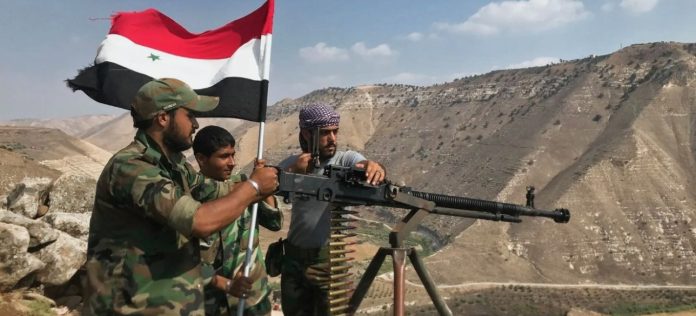Сирійський збройний конфлікт важко вмістити в рамки традиційних протистоянь. Як наголошує політичний аналітик Ігар Тишкевич, ситуація тут набагато складніша, ніж просте протистояння “за Асада” чи “проти Асада”. Сирійський конфлікт — це багатошаровий клубок із внутрішніх і зовнішніх інтересів, який продовжує визначати динаміку подій у регіоні.
Сирійська громадянська війна стала ареною, де “всі воювали проти всіх”. Щонайменше десяток політичних і військових угруповань брали участь у цьому конфлікті, причому на певному етапі всі вони об’єдналися проти спільного ворога — “Ісламської держави” (ІД). У протистояння були втягнуті також численні іноземні держави, серед яких Росія, Іран, Туреччина, США та Велика Британія, які діяли як на землі, так і з повітря. Однак більшість бойових дій закінчилися політичними домовленостями, що змусило різнорідні угруповання співіснувати на одній території. Наприклад, у північному регіоні виникла турецька “протодержавна” зона, яка функціонує автономно від Сирії, тоді як на сході зберігається контроль Сирійського Курдистану.
Важливу роль у конфлікті відіграє Туреччина. Її активність обумовлена не лише прагненням протистояти ІД чи курдським силам, але й бажанням посилити вплив у регіоні. Контроль над сирійськими туркоманами та стримування розширення Сирійського Курдистану є ключовими завданнями Анкари. Потенційне виникнення курдської держави було б загрозою для Туреччини, що пояснює її військові операції, такі як “Оливкова гілка”. Поточні бої свідчать про новий виток напруженості. Загони “Хайят Тахрір аш-Шам” (ХТШ) розпочали наступ, захопивши Алеппо — стратегічно важливе місто. Успіх ХТШ супроводжувався активністю “Сирійської національної армії” (СНА), яка бореться проти курдських сил. Це свідчить про намір Туреччини посилити свої позиції в регіоні, одночасно послаблюючи як курдів, так і іранські проксі.
Реалізація такого сценарію призведе до ослаблення позицій Ірану, а також часткового падіння впливу Росії. Туреччина натомість може розпочати формування нової “протодержави” зі столицею в Алеппо. Курдські сили опиняються під тиском, що ставить під питання майбутнє їхнього анклаву на півночі.
Наступний етап конфлікту — політичні консультації щодо майбутнього устрою Сирії. Туреччина прагне використати свої досягнення для здобуття додаткових поступок. Однак мирне врегулювання виглядає далеким через численні розбіжності інтересів залучених сторін.


